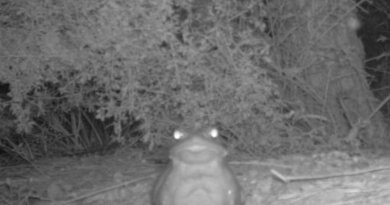New Covid-19 and Pets Study Underway
[ad_1]
As Covid-19 began spreading throughout the U.S. earlier this year, people asked if they could give the novel coronavirus to their pets, or if their pets could infect them with it. Some worried about cross-contamination at dog parks, or the consequences of asymptomatic people petting or otherwise making contact with their dogs.
Like so many other things about this virus, answers to these questions continue to evolve. At first, the consensus was that we could neither infect nor be infected by our pets. Then, a few animals tested positive and owner anxieties spiked, which put companion animals at risk—a worrisome byproduct of an already fraught public health crisis. As a report on The Conversation site notes, “Animals, specifically those who live in our homes, remain at risk in ways not currently considered in national policy responses. This includes the risks of abandonment, opportunistic adoption and poor outcomes post-pandemic, and domestic violence.”
Later investigations concluded that we were more likely to transmit Covid-19 to our animals than they were to us.
Now, researchers at Washington State University and the University of Washington are trying to find an answer we can count on by determining how companion animals become infected. As Dr. Katie Kuehl, of Washington State University’s Veterinary Clinical Sciences program, noted, “Right now the information suggests that companion animals are a dead-end host—the disease goes there, but it doesn’t go anywhere else. But this is something we need to understand better to keep families and animals safe.”
GET THE BARK IN YOUR INBOX!
Sign up for our newsletter and stay in the know.
Over the next few weeks, the study will be collecting samples from at least 100 of Washington’s Seattle and King County companion animals—including dogs, cats, hamsters and ferrets but excluding reptiles and birds—in households where one or more individuals have tested positive for Covid-19. The test they’ll be using was developed specifically for animals by the Washington Animal Disease Diagnostic Laboratory (WADDL), on the Washington State University campus in Pullman, which will also process the samples.
According to the University of Washington Center for One Health Research website, after appropriate candidates are enrolled, participants will complete a one-time survey, which can be done online or over the phone. The point of the survey is to determine how these human and animal lives intersect. “We ask how much time they spend with their animals, do they sleep in the same bed, do they allow their pets to eat food from the same plates or bowls they use,” said UW research coordinator Vickie Ramirez, who offered herself as an example. “My cat breathes my exhalations all night, because she’s in my face.”
Veterinarians will then make one or more household visits to take samples from each companion animal; samples include nasal and oral swabs and a blood draw. Only those animals who test positive will be scheduled for repeat sampling.
At present, the AVMA does not recommend that companion animals be routinely tested for Covid-19. “Current expert understanding is that SARS-CoV-2 [the virus that causes Covid-19] is primarily transmitted person-to-person. At this time, there is no evidence that animals play a significant role in spreading SARS-CoV-2. And, based on the limited data available, the risk of animals spreading Covid-19 to people is considered to be low.”
In the meantime, the CDC offers a number of useful guidelines for human/pet interactions on their site, and the Oregon Veterinary Medical Association provides an excellent overview of what we currently know, as well as the best ways to protect ourselves and our pets from Covid-19 until better testing, protocols and vaccines are available.
[ad_2]
Source link




Kamagra 100mg price https://kamagra.icu/# – super kamagra
aviator jogo de aposta – https://jogodeaposta.fun/ jogo de aposta online